Tag: replacing lost teeth
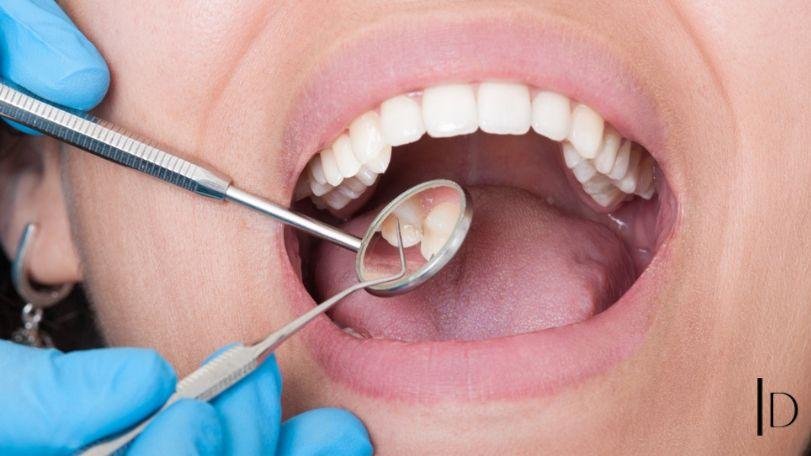
Understanding Teeth Lose Causes, Prevention, and Treatment
May 17, 2024Teeth lose are a common concern for both children and adults. While it’s a normal part of growing up for kids, loose teeth in adults can be a sign of underlying issues that need immediate attention. Understanding the causes, prevention, and treatment options for teeth lose can help you maintain a healthy smile.
Causes of Teeth Lose
For Children
In children, teeth lose are a natural part of the development process. As their permanent teeth begin to grow, they push against the roots of the baby teeth, causing them to loosen and eventually fall out. This typically starts around the age of six and continues until the early teenage years.
For Adults
Loose teeth in adults, however, are often a sign of dental problems that need to be addressed. Some common causes include:
- Gum Disease: Periodontal disease, or gum disease, is a major cause of loose teeth in adults. It occurs when plaque and tartar build up on the teeth and gums, leading to infection and inflammation. Over time, this can cause the gums to recede and the teeth to become lose.
- Trauma or Injury: Accidents or injuries to the mouth can cause teeth to become lose. This might happen from a fall, a blow to the face, or even biting down on something hard.
- Bruxism: Grinding or clenching your teeth, known as bruxism, can put excessive pressure on your teeth, leading to them becoming loose over time.
- Bone Loss: Conditions that affect bone density, such as osteoporosis, can weaken the jawbone and result in teeth lose.
- Poor Oral Hygiene: Inadequate brushing and flossing can lead to plaque buildup, gum disease, and eventually teeth lose.
Prevention of Teeth Lose
Preventing loose teeth involves maintaining good oral hygiene and taking steps to protect your teeth from injury and disease. Here are some key tips:
- Practice Good Oral Hygiene: Brush your teeth at least twice a day with fluoride toothpaste and floss daily to remove plaque from between your teeth and under your gumline.
- Regular Dental Checkups: Visit your dentist regularly for checkups and cleanings. Your dentist can identify early signs of gum disease and other issues that might lead to teeth lose.
- Healthy Diet: Eat a balanced diet rich in vitamins and minerals that support oral health. Avoid excessive consumption of sugary foods and drinks, which can contribute to tooth decay and gum disease.
- Mouthguards: If you participate in contact sports or grind your teeth at night, consider wearing a mouthguard to protect your teeth from injury.
- Quit Smoking: Smoking can significantly increase your risk of gum disease, which can lead to teeth lose.
Treatment for Teeth lose
If you notice that your teeth are lose, it’s important to seek professional dental care as soon as possible. Treatment will depend on the underlying cause:
- Gum Disease Treatment: If gum disease is the cause, your dentist may recommend a deep cleaning procedure called scaling and root planing to remove plaque and tartar from below the gumline. In severe cases, surgical intervention may be necessary.
- Splinting: For teeth loosened by trauma or bruxism, your dentist might use a technique called splinting. This involves bonding the loose tooth to adjacent teeth to stabilize it.
- Bone Grafts: In cases of bone loss, a bone graft might be necessary to regenerate lost bone tissue and provide a stable foundation for your teeth.
- Lifestyle Changes: Addressing habits like smoking or teeth grinding can prevent further damage. Your dentist may also recommend changes to your diet and oral hygiene routine.
- Extraction and Replacement: In cases where a tooth cannot be saved, extraction might be necessary. The missing tooth can be replaced with a dental implant, bridge, or denture.
Conclusion
Teeth lose can be a sign of significant dental issues, especially in adults. By understanding the causes, practicing good oral hygiene, and seeking prompt dental care, you can prevent and treat loose teeth effectively. Remember, maintaining a healthy smile requires regular dental visits and a commitment to good oral health practices.
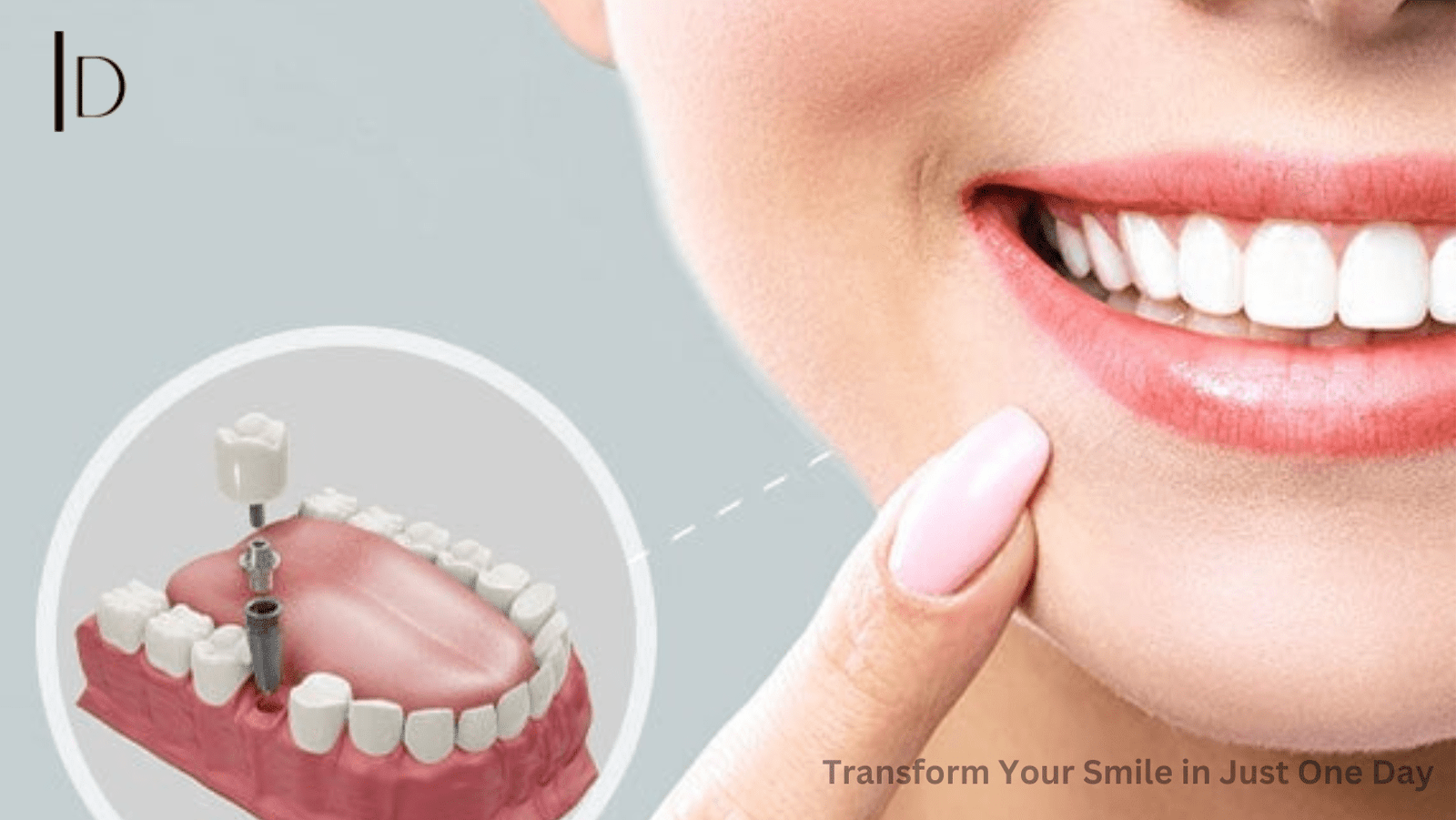
Transform Your Smile in Just One Day: The Magic of Teeth in a Day
April 26, 2024
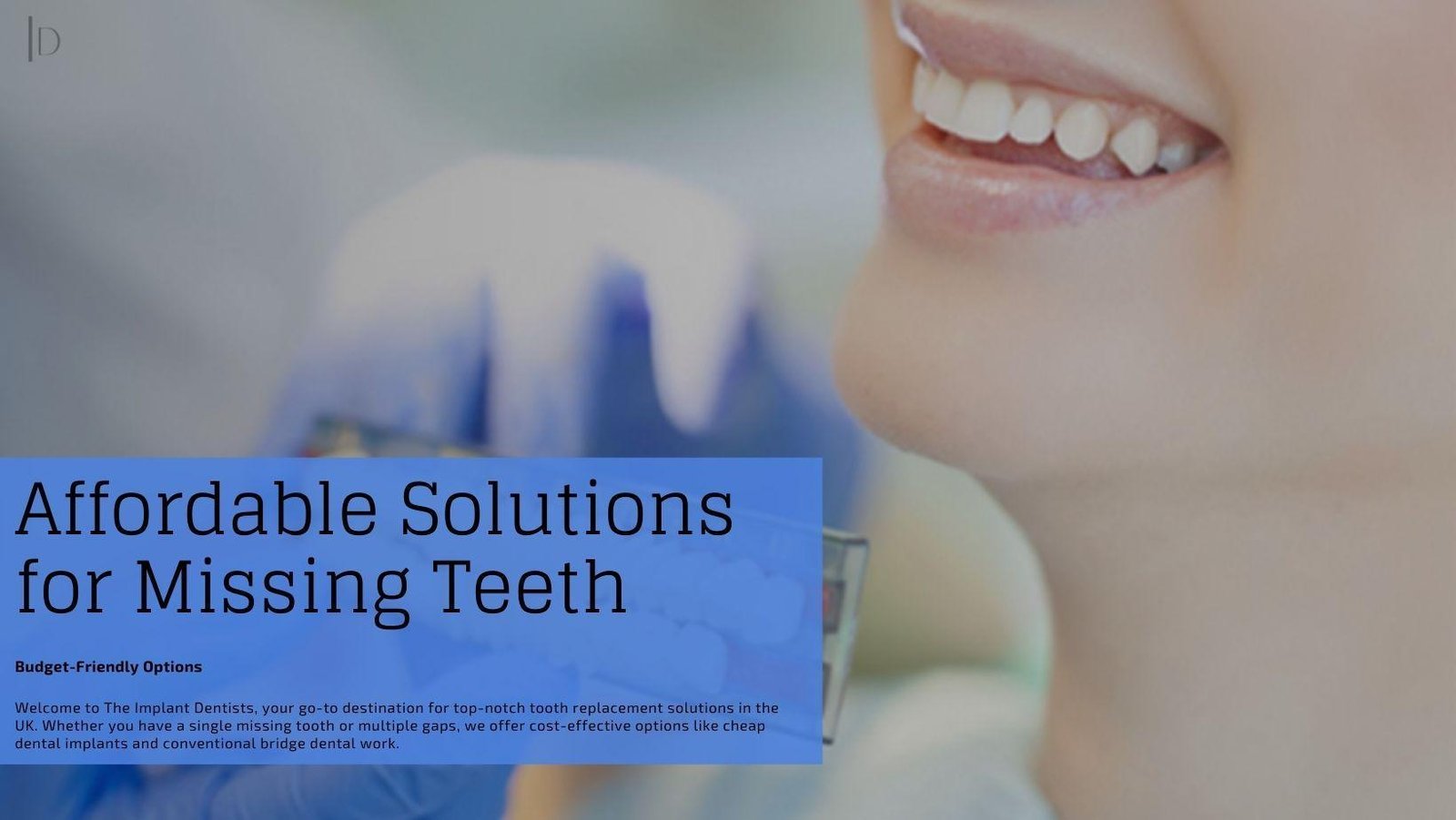
Affordable Solutions for Missing Teeth: Exploring Budget-Friendly Options
March 27, 2024Missing teeth, restoring your smile should not come with a big price tag. We understand the importance of providing affordable solutions that allow you to regain your confidence and oral health without financial pressure. Explore a variety of budget friendly options for replacing missing teeth, from traditional dentures to innovative dental implants, we will help you discover affordable solutions tailored to your needs. Say goodbye to gaps in your smile and hello to a brighter, more confident you with our affordable tooth replacement options.
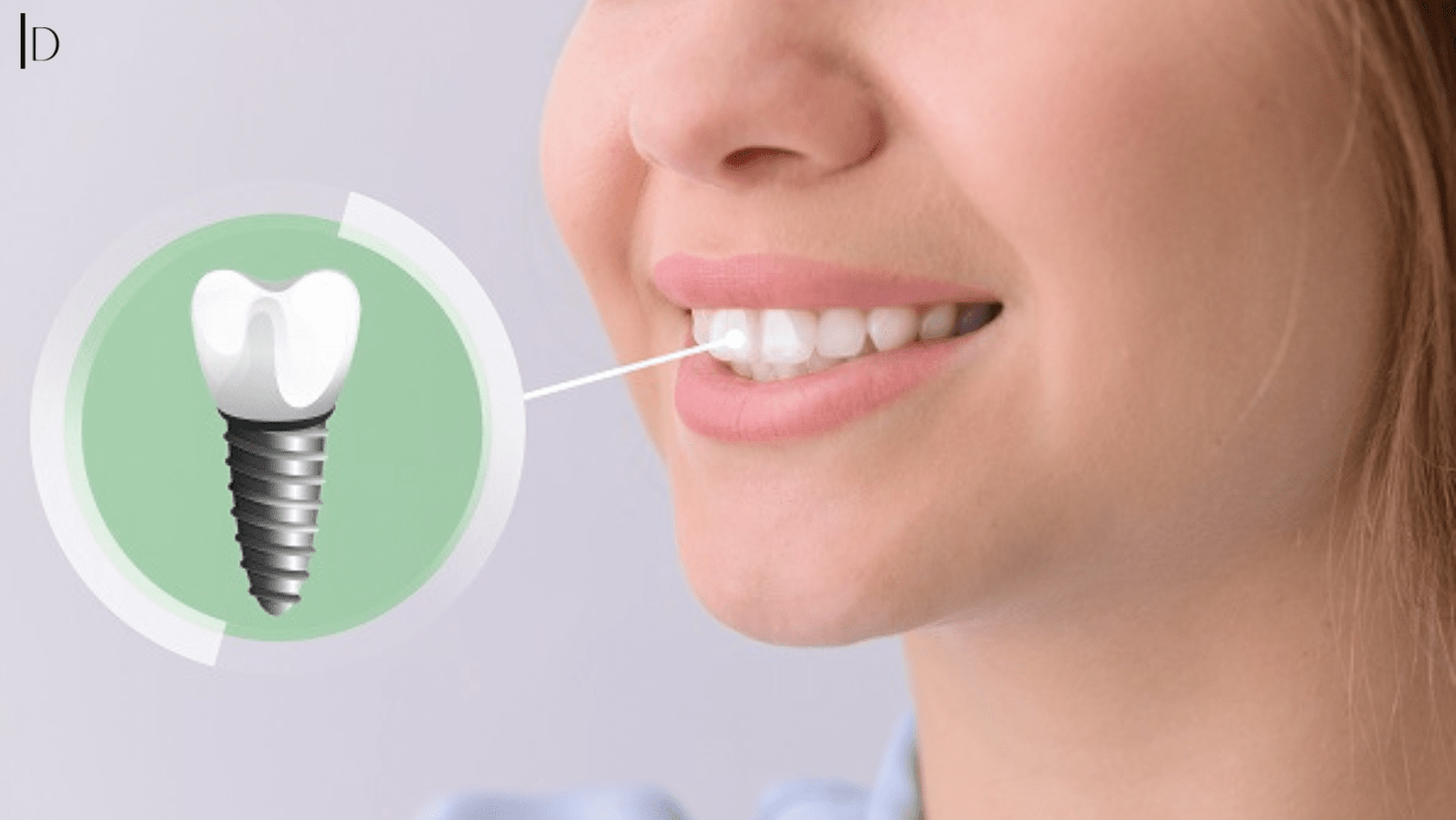
The Latest Advances in Tooth Implants: UK Perspectives
March 21, 2024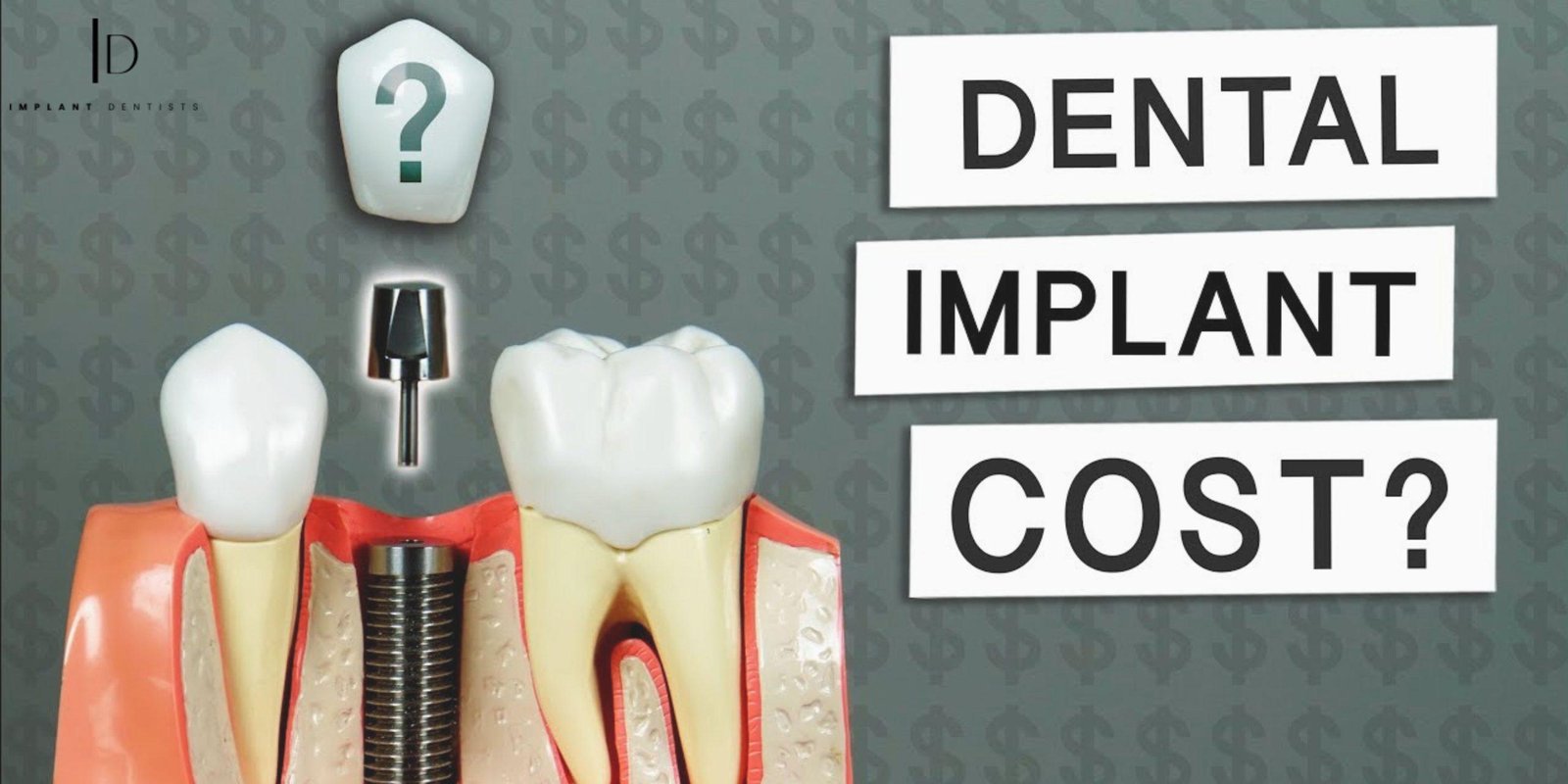
What Factors Influence the Cost of Dental Implants?
March 13, 2024Dreaming of a flawless smile with permanent replacements for missing teeth? Dental implants are a fantastic option, offering both aesthetics and functionality. But before you embark on this exciting journey, understanding the cost factors involved is crucial.
While there’s no single price tag, several key elements significantly influence the final bill. Let’s delve deeper into the main ones:
1. Number and Location of Implants
This plays a major role. Replacing a single tooth is naturally less expensive than a full arch of implants. Additionally, front teeth often require more sophisticated implants due to their high visibility. These factors contribute to a higher price tag for implants in these areas. Additionally, the location of the missing teeth within the mouth can influence the pricing. For instance, front teeth, which are more visible when smiling, talking, or eating, often require more sophisticated implants to achieve optimal aesthetics. These implants may need to be customized in shape, size, and color to seamlessly blend with the natural teeth surrounding them.
2. Complexity of the Procedure
Not all implant placements are created equal. Simple, straightforward cases will have a lower cost compared to situations requiring additional procedures. Bone grafting, for example, might be necessary to strengthen the jawbone before implant insertion. This adds to the overall treatment complexity and cost. Bone grafting involves transplanting bone tissue from elsewhere in the body or using synthetic materials to augment the jawbone. This additional step not only increases the complexity of the treatment but also incurs extra costs for the materials, surgical procedures, and extended recovery time.
3. Material Selection
Both the implant post itself and the restoration (crown, bridge, etc.) come in varying material options. Premium materials known for their durability and aesthetics typically cost more. Discuss these options with your dentist to find the best balance between cost and your desired outcome. However, patients may also have the option of choosing zirconia implants, which are known for their natural appearance and compatibility with those who have metal sensitivities. While titanium implants tend to be more cost-effective, zirconia implants often come with a higher price tag due to their advanced manufacturing process and aesthetic qualities.
4. Geographic Location
Dental costs, like many other services, can vary depending on your location. Urban areas with a higher cost of living often have pricier dental procedures compared to rural areas. In urban centers, where overhead costs such as rent, utilities, and staff salaries are typically higher, dental practices may need to adjust their pricing to cover these expenses. Additionally, urban areas tend to have a higher concentration of specialized dental professionals and state-of-the-art facilities, which can also contribute to higher costs.
5. Dentist’s Expertise and Experience
A skilled and experienced dentist with a proven track record in implant dentistry may command a higher fee. However, their expertise can ensure a smooth procedure, successful long-term results, and potentially save you money by avoiding complications down the line. Dentists who specialize in implant dentistry have undergone extensive training and accumulated years of experience in performing implant procedures. They possess a deep understanding of the complexities involved in dental implant placement, including assessing bone density, determining optimal implant placement, and ensuring proper integration with surrounding tissues.
Managing the Cost of Dental Implants
While the initial investment in dental implants can seem significant, consider it a long-term solution for a healthy, beautiful smile. Here are some tips to manage the cost:
- Consult with your dentist: Discuss your specific needs and get a personalized cost estimate. Every patient’s dental implant journey is unique, and your individual needs will play a significant role in determining the overall cost of treatment. During your initial consultation with your dentist or oral surgeon, you’ll have the opportunity to discuss your dental health goals, concerns, and any specific preferences you may have regarding the type of implants or treatment options.
- Explore insurance coverage: While coverage for implants varies, some dental plans may offer partial reimbursement. This is because dental insurance plans often categorize dental implants as a cosmetic or elective treatment rather than a medically necessary procedure. However, some dental insurance plans may offer partial reimbursement or coverage for certain aspects of the dental implant treatment, such as the initial consultation, diagnostic imaging, or any necessary adjunctive procedures like bone grafting
- Financing options: Many dental practices offer flexible payment plans to make this investment more manageable. They often provide flexible payment plans. These payment plans allow patients to spread out the cost of treatment over time, breaking it down into smaller, more affordable monthly installments. Flexible payment plans typically involve arranging a payment schedule with the dental practice, allowing patients to pay for their dental implants gradually rather than in one lump sum.
Conclusion
Remember, a healthy discussion with your dentist is key to navigating the cost of dental implants. They can provide a clear picture of the factors at play and help you find a solution that fits your budget and smile goals. Your dentist will conduct a comprehensive evaluation of your oral health, including the number of teeth to be replaced, the condition of your jawbone, and any additional procedures that may be necessary. They will take the time to explain the different types of dental implants available, along with their respective costs and benefits.
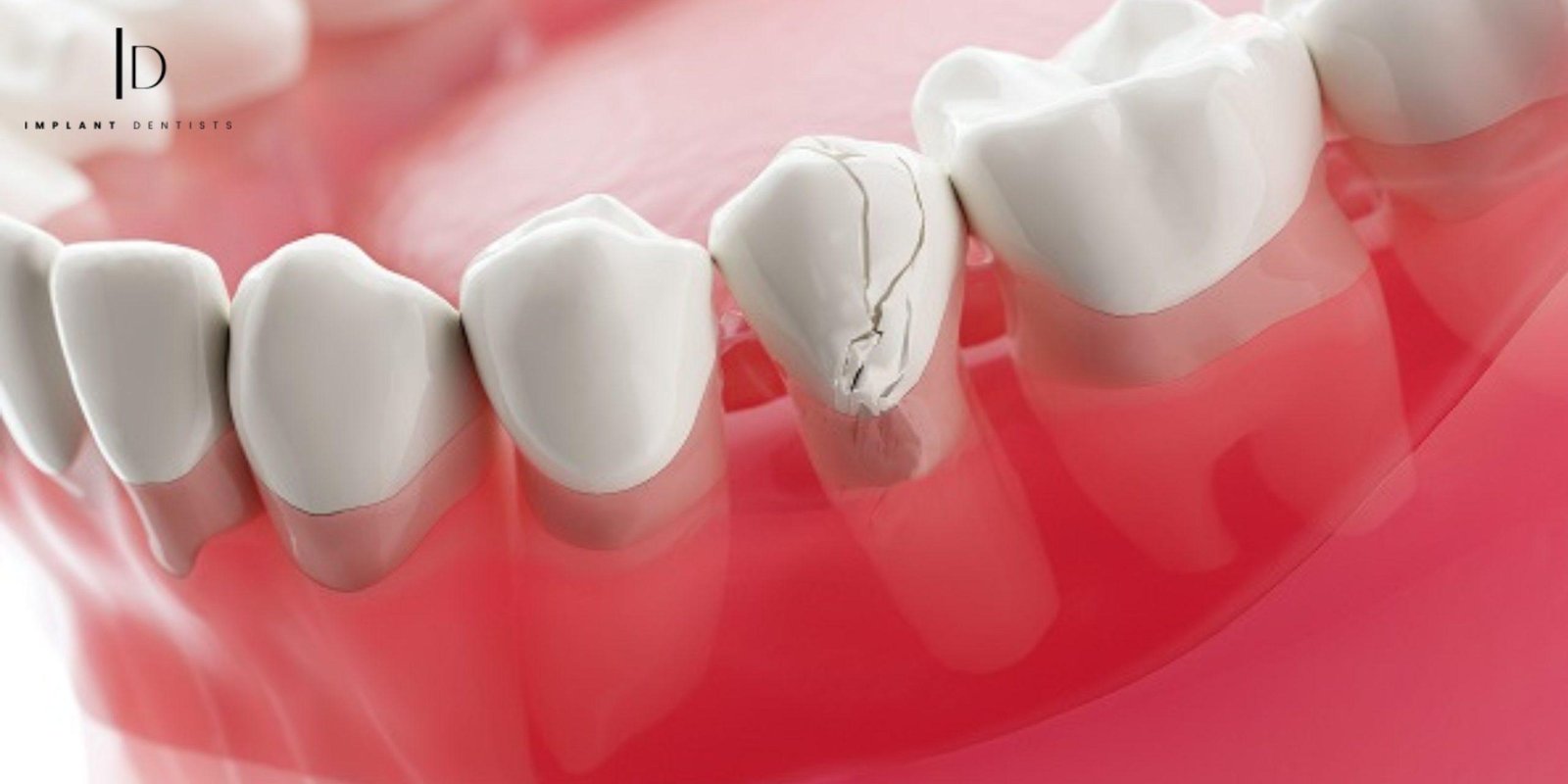
The Complete Guide to Repairing Broken Teeth| Causes, Types, and Treatment Options
February 16, 2024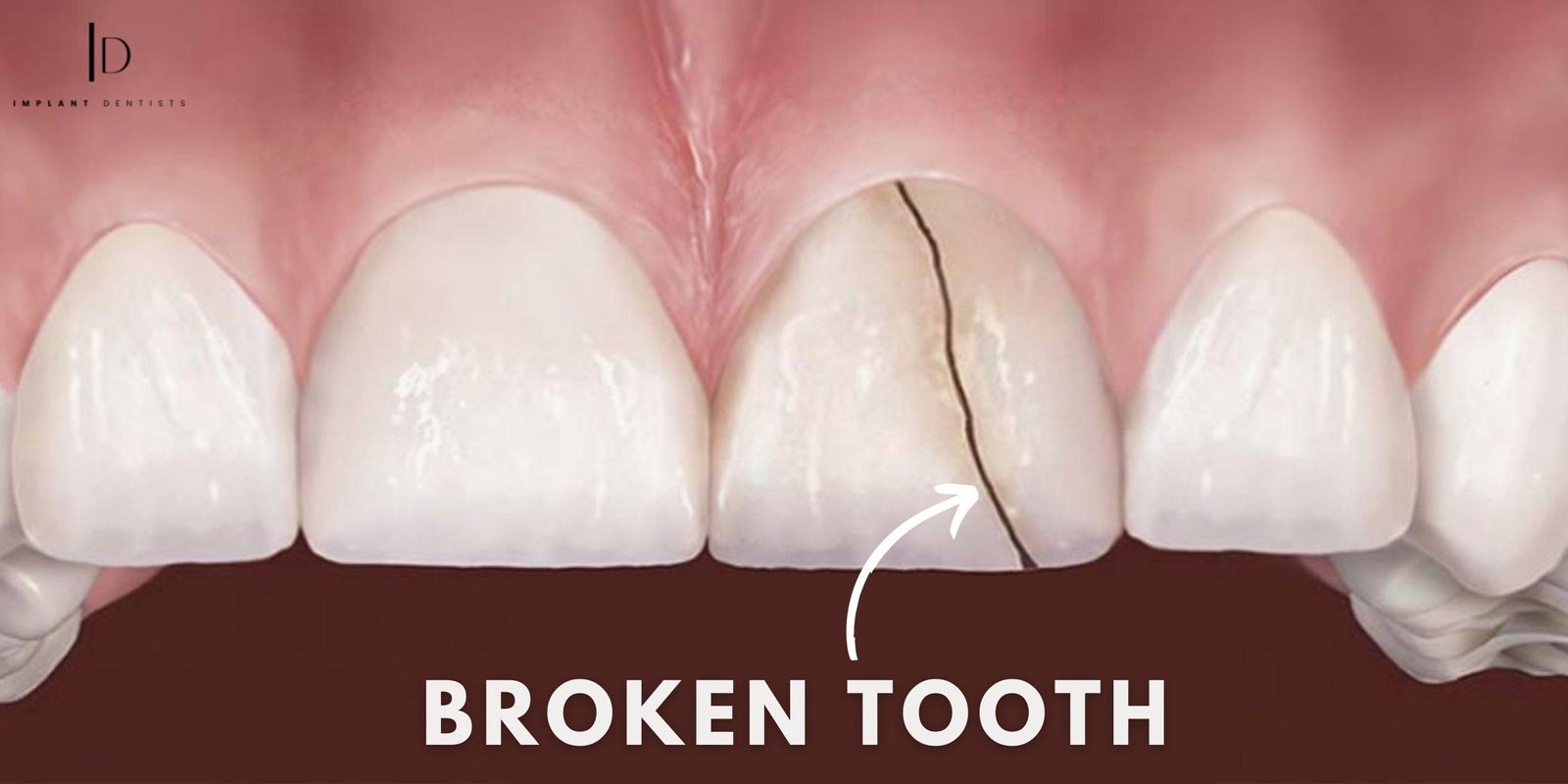
Saving Smiles| Exploring 5 Causes, Treatments & Benefits for Broken Tooth
February 5, 2024A broken tooth can be a worry and painful experience, affecting not just your oral health, but also your confidence in showcasing your smile. Fortunately, advancements in dental care have paved the way for effective broken tooth repair options. Broken tooth repair is a dental procedure designed to restore and renew a damaged or fractured tooth. It brings back functionality to the patient’s smile. Whether the result of an accident, injury, or decay, a broken tooth can cause discomfort, compromise oral health, and impact one’s confidence. Now, we’ll explore the causes of a broken tooth, available treatments, and the benefits of seeking prompt repair.
Causes of Broken Tooth
- Trauma or Injury: Accidents, falls, or sports related injuries can cause direct impact to the mouth, leading to a broken tooth. This can happen during activities like playing sports, falling, or any other situation where the mouth experiences forceful contact.
- Biting on Hard Objects: Chewing on hard substances such as ice, unpopped popcorn kernels, or non food items can lead to tooth breakage. The excessive force applied while biting down on hard objects can cause teeth to fracture or chip.
- Untreated Tooth Decay: Prolonged tooth decay weakens the structure of the tooth, making it more susceptible to breakage. When cavities are left untreated, they can progress and compromise the unity of the tooth, eventually causing it to break.
- Bruxism (Teeth Grinding): Regular teeth grinding, known as bruxism, can apply significant pressure on the teeth, leading to wear and tear. Over time, this constant grinding can weaken the coating and result in fractures or breaks in the teeth.
- Large Fillings or Weak Tooth Structure: Teeth with large fillings or those that have undergone extensive dental work may be more prone to breakage. The presence of a large filling can compromise the structural integrity of the tooth. If the filling is old or poorly done, the tooth becomes more susceptible to fractures.
Five Potential Treatments for a Broken Tooth
- Dental Bonding: Dental bonding is a common treatment for minor tooth fractures. It is often used for fractures caused by trauma or biting on hard objects. In this procedure, a tooth coloured resin is applied to the damaged tooth and then shaped and polished to restore its appearance and function.
- Fillings: If the broken tooth is a result of untreated tooth decay, a dental filling may be used to repair the damage. The decayed portion of the tooth is removed. A filling material is used to fill the cavity and restore the tooth’s structure.
- Dental Crowns: For more extensive tooth damage, such as a large fracture or a weakened tooth structure, a dental crown may be recommended. A dental crown is a custom made cap that covers the entire tooth, providing strength, protection, and restoring its appearance.
- Night Guards for Bruxism: If teeth grinding is the cause of the broken tooth, a dentist may recommend the use of a custom fitted night guard. This oral device is worn while sleeping to cushion the impact of grinding. It prevents further damage to the teeth.
- Root Canal Treatment: In cases where a broken tooth extends into the pulp, a root canal may be necessary. This involves removing the damaged pulp, cleaning and disinfecting the root canal, and then sealing it to prevent infection. After a root canal, a crown is often placed to strengthen and protect the tooth.
Benefits about Broken Tooth Treatment
- Improved Oral Health: Seeking timely broken tooth repair not only relieves pain but also contributes to overall oral health. Addressing fractures prevents the risk of infections and decay that may arise from exposed tooth pulp.
- Enhanced Aesthetics: Dental repairs, such as bonding, crowns, or veneers, go beyond functional benefits. They restore the natural appearance of the tooth. This boosts your confidence and allows you to smile freely without concerns about visible damage.
- Long-term Cost Savings: Investing in broken tooth repair can save you money in the long run. Addressing the issue promptly helps prevent further complications that may require more extensive and expensive dental procedures in the future.
- Restored Functionality: Repairing a broken tooth ensures that you can comfortably chew and eat without discomfort. This restoration of functionality is essential for proper digestion and overall well-being.
- Preservation of Natural Teeth: Certain treatments, like dental bonding and crowns, aim to preserve the natural structure of the tooth. This is advantageous compared to extraction, as it helps maintain the integrity of your natural teeth for as long as possible.
- Boosted Confidence: A healthy, well-maintained smile can significantly impact your self-esteem. By addressing a broken tooth promptly, you improve the physical aspects of your smile. You enhance your mental well-being by feeling more confident and comfortable in social situations. Address a broken tooth promptly to maintain this feeling.
- Customized Solutions: Dental professionals offer a range of repair options tailored to your specific needs. Whether it’s a minor chip or a more extensive fracture, there are personalized solutions that cater to the severity of the damage, ensuring optimal results.
Conclusion
In the journey to broken tooth repair, recognizing the causes is key. Understanding the signs and embracing the available treatment options are also important. Whether your tooth has suffered a minor chip or requires a more extensive restoration, the benefits of timely repair extend beyond pain relief. By promptly addressing a broken tooth, you not only alleviate discomfort but also prevent further damage, ensuring the longevity of your oral health. The array of treatment options, from dental bonding to implants, allows for personalized solutions tailored to your unique situation. Our dedicated dental care team is committed to delivering personalized and effective treatment for broken teeth. They help you regain confidence in your oral health with compassionate care.
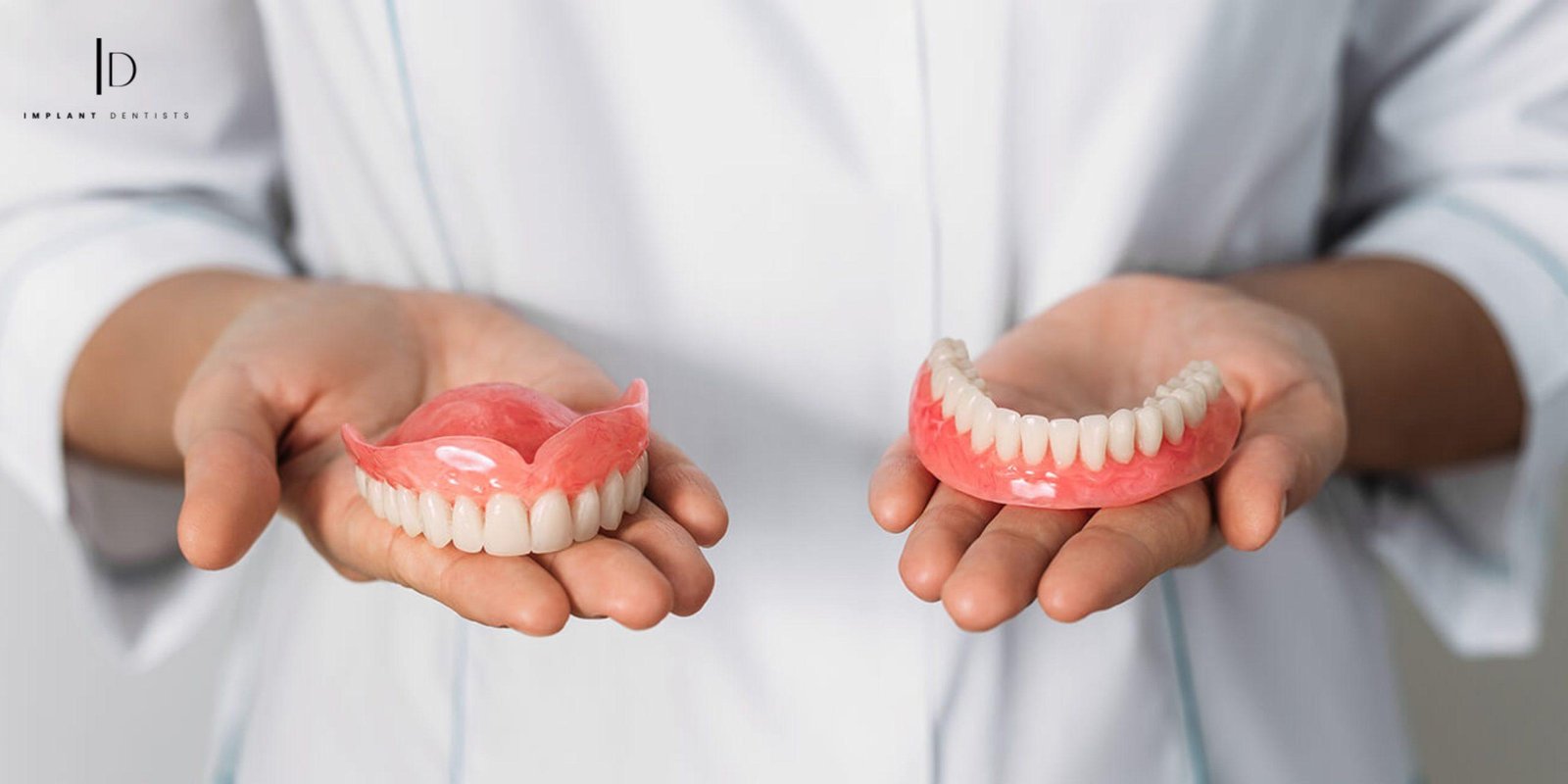
Dentists Solution : The Game-Changing Innovation by The Implant Dentists in Crewe
December 22, 2023In the realm of dental care, the quest for reliable and long-lasting teeth replacement solutions has led to groundbreaking advancements. Among these, dental implants stand as a beacon of hope for individuals seeking effective remedies for missing teeth. In Crewe, the Stafford implant dentists at The Implant Dentists have established themselves as pioneers in this field, offering cutting-edge treatments such as fixed teeth, teeth in a day, and the revolutionary “All of the four” dental implants. Let’s delve into the world of dental implants and explore how these procedures provided by The Implant Dentists in Crewe are transforming smiles and lives.
Understanding Dental Implants
Dental implants are artificial tooth roots made of biocompatible materials such as titanium. Surgically placed into the jawbone, they serve as sturdy anchors for replacement teeth or bridges. Their unique ability to fuse with the bone makes them a robust and permanent solution for missing teeth.
Benefits of Dental Implants:
- Enhanced Aesthetics: Implants look and feel like natural teeth, restoring a confident smile.
- Improved Functionality: They restore proper chewing and speaking abilities, unlike removable dentures.
- Preserving Bone Health: Implants prevent bone loss by stimulating the jawbone, maintaining facial structure.
- Longevity: With proper care, dental implants can last a lifetime, making them a worthwhile investment.
- Convenience: Unlike dentures, implants don’t require adhesives or special cleaning procedures.
Stafford Implant Dentist Expertise
Implant dentistry has revolutionized the field of dental care, offering a permanent solution for missing teeth. Dental implants are artificial tooth roots surgically placed into the jawbone, providing a sturdy foundation for replacement teeth. Stafford implant dentists are adept at utilizing advanced techniques and state-of-the-art technology to ensure successful implantation and optimal results for their patients. The Implant Dentists in Crewe boast a team of highly skilled and experienced Stafford implant dentists who specialize in teeth replacement using cutting-edge techniques.
Teeth Replacement Options Offered:
- Fixed Teeth: This involves securing replacement teeth permanently onto dental implants, providing stability and functionality similar to natural teeth.
- Teeth in a Day: A remarkable advancement allowing patients to receive implants and a temporary set of teeth in a single visit, avoiding prolonged gaps in their smile.
- All of four Implants: A revolutionary technique where a full arch of teeth is supported by only four strategically placed implants, offering a cost-effective and efficient solution for complete smile restoration.
The Implant Dentists’ Approach
The Implant Dentists prioritize patient comfort, safety, and optimal results. Their process involves:
- Comprehensive Assessment: Thorough examinations and discussions to understand each patient’s unique needs and goals.
- Personalized Treatment Plans: Tailored solutions using state-of-the-art technology and techniques for predictable outcomes.
- Expertise and Precision: Skilled implant placement and restoration procedures led by experienced Stafford implant dentists.
- Post-Treatment Care: Follow-up and guidance to ensure proper healing and maintenance for long-term success.
What Are All of four Implants?
All of four Implants represent an innovative dental procedure designed to replace an entire arch of teeth using only four strategically placed implants per jaw. This technique provides a stable foundation for a full set of prosthetic teeth, offering patients a durable, natural-looking smile.
The Procedure Explained
The process begins with a comprehensive consultation, where the team at The Implant Dentists in Crewe evaluates the patient’s oral health and discusses the treatment plan. During the procedure, four implants are strategically positioned in the jawbone to maximize support and stability for the prosthetic teeth. The implants fuse with the bone over time, creating a secure base for the final restoration.
Benefits of All of four Implants
1. Enhanced Aesthetics and Functionality
- Restore a natural-looking smile, boosting confidence and self-esteem.
- Improved ability to chew and speak comfortably, similar to natural teeth.
2. Reduced Treatment Time and Cost
- Fewer implants required to be compared to traditional methods, reducing treatment time and expenses.
- Eliminates the need for bone grafting in most cases, streamlining the process.
3. Immediate Results and Convenience
- Patients often receive temporary prosthetics on the same day as the implant placement, allowing for immediate aesthetic and functional benefits.
- Minimizes downtime and discomfort compared to traditional implant procedures.
4. Long-term Durability and Reliability
- All of four Implants offer remarkable stability and longevity when properly cared for.
- With proper maintenance and regular check-ups at The Implant Dentists in Crewe, these implants can last for many years.
Transforming Smiles, Transforming Lives
The impact of advanced dental implant procedures offered by The Implant Dentists in Crewe extends beyond aesthetics. It restores confidence, enhances oral health, and improves overall well-being for their patients.
Testimonials:
- “I never thought I’d smile confidently again until I discovered The Implant Dentists. Their expertise in fixed teeth changed my life!” – Emma L.
- “The convenience of getting teeth in a day was unbelievable. I walked out with a new smile that felt completely natural!” – James M.
Conclusion
The Implant Dentists in Crewe, with their commitment to excellence and cutting-edge techniques like fixed teeth, teeth in a day, and All of four Implants, are reshaping the landscape of dental care. Their Stafford implant dentists are at the forefront of transforming smiles and restoring confidence in their patients, one implant at a time. For those seeking top-notch The Implant dental solutions in Stafford or Crewe, The Implant Dentists stand as a beacon of hope, offering life-changing treatments that go beyond just replacing teeth – they restore happiness and confidence.
Visit The Implant Dentists today and take the first step towards a brand-new smile that lasts a lifetime.
